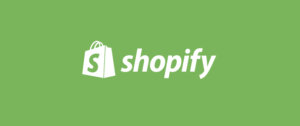Maximizing Social Networking: A Free Beginner’s Guide
Sections of This Topic Include
Introduction
– What is Social Networking?
– What is Social Media?
How to Get Started With Social Media
– Which Social Media Tools Should You Use?
– What Are Uses of Social Media?
– How to Get Started With Social Media
Communicating on Social Media
– Whom Will You Communicate With?
– How Will You Communicate It?
Social Media Plans and Policies
– Build Your Social Media Plan Right From Scratch
– Plan How to Evaluate Your Social Networking
– Social Networking Policies
Example Use: Social Media for Marketing
– Social Media for Marketing – Part 1 of 2
– Social Media for Marketing – Part 2 of 2
Social Media Tools
– Categories of Social Media Tools
– Major Social Media Tools
– Other Popular Social Media Tools
– Social Media Management Tools
Online Reputation Management
– How to Monitor Your Reputation
– How to Fight Back When Needed
Get Help from Experts in Social Media?
Also consider
Computers
Marketing
Marketing On-Line
Networking
Public and Media
Relations
Related Library Topics
Learn More in the Library’s Blogs Related to Social Networking and Social Media
In addition to the articles on this current page, also see the following blogs
that have posts related to Social Networking and Social Media. Scan down the
blog’s page to see various posts. Also see the section “Recent Blog Posts”
in the sidebar of the blog or click on “next” near the bottom of a
post in the blog. The blog also links to numerous free related resources.
Library’s
Career Management Blog
Library’s
Coaching Blog
Library’s
Human Resources Blog
Introduction
What is Social Networking?
MarketingTerms.com
defines social networking simply as “The process of creating, building,
and nurturing virtual communities and relationships between people online.”
So social networking is the broad type of networking that so many of us consider
networking to be; however, it is conducted virtually via tools on the Internet.
Online social networking is viewed by many as the next new paradigm in personal,
professional and organizational networking and marketing. The following link
provides a broad overview of social networking.
Social
Networking (Wikipedia)
The social network is a vital resource for organizations and is accessible
to us all. Organizations can usually control the assets that they use, but who
controls the social network?
Who Owns the Social Network?
What is Social Media?
Whatis.com
defines social media as “the collective of online communications channels
dedicated to community-based input, interaction, content-sharing and collaboration.
Websites and applications dedicated to forums, microblogging, social networking,
social bookmarking, social curation, and wikis are among the different types
of social media.” So essentially social media refers to the tools that
used in social networking.
This article helps you to take a broader — but more conversational
— view of social media.
28
Telling Responses to 27 Things About Working in Social Media
Here are some articles that explain why social media is so important to organizations.
How Social Networking Has Changed Business
Company
Culture: It Cannot Run and It Cannot Hide (from Social Media)
How to Get Started With Social Media
How to Get Started With Social Media
It can seem overwhelming to think about even where to start, especially because
it seems that social media can be used for so many applications — and because
the number of tools seem to expand so rapidly. Fortunately, a lot of the advice
about getting started seems similar to advice about starting other ventures:
start with planning. That is the topic in the next section, but for now, it
will help to read some advice about getting started.
17
Tips For Getting Your Small Business Started With Social Media
Getting Started with Social Media
6 Essential Steps for Executing Your Social Media Strategy
How
To Get Started In Social Media
What Are The Uses Of Social Media?
As with any widely used set of tools, it is sometimes difficult to know where
to start when using the tools. As you can imagine, the uses of social media
are vast. Perhaps the most visible use is for networking with friends and family.
Many of us are also used to thinking about social media as being used for marketing,
public relations, advertising and promotions, and research for a wide variety
of purposes. People also enjoy immediate access to a wide variety of news media
and journalism about current events.
However, more recently, the tools are also used to cultivate citizen participation,
including to enlighten citizenry about various social causes, as well as to
mobilize and organize citizens to have a strong voice in their communities and
nations.
What
Are the Uses of Social Media?
More
Uses of Social Media
As beneficial as social media has been, there have also been a variety of negative
uses and impacts.
The
Negative Impact of Social Networking Sites
How
Social Media is Bad for You
Social
Media Overload: When is Enough Too Much?
Which Social Media Tools Should You Use?
Start by taking a broad view of your most important needs in addressing your
strategic priorities. For example, is it most important now to expand your markets
and products? If so, then use market research to identify new markets and use
product development to produce products and services for those new markets.
In that situation, use social media tools that have has a large number of users
in order to pose your research questions across a broad range of people, for
example, use Facebook and Twitter. If, on the other hand, your most important
priority is to cultivate stronger relationships with your customers, then you
might use Twitter to regularly send short messages to them. So before you start
selecting which tools to use, first you should determine what “success”
even means.
What Does Real Social Media Success Look Like?
So to best identify which tools to use, it is important to:
- To do planning to know what are your most important strategic needs now?
- Think about “success” means, for example, what goals would be
achieved. - Consider the categories of social media that most closely match your needs.
- Consider some of the most popular tools in that category.
- Perhaps get some quick expert advice to narrow down your choices.
- Start simple, but start.
The remaining subtopics will help you to select the best tool to use.
Communicating on Social Media
The most important part of using social media is not selecting the right tool.
It’s knowing whom to write to and what to write to them.
Whom Will You Communicate With?
Think about:
- The different groups that you want to communicate with, for example, customers,
suppliers, investors/funders, collaborators, community leaders, researchers,
etc. - What do you want each group to believe about you and/or your organization?
- What messages need to be conveyed to each group in order for them to believe
that? - How does each group prefer to get their communications, for example, short
emails or tweets, brochures, research reports, etc.? - Who will communicate to which groups, how and by when?
Put the answers to those questions into an overall communications plan that
you begin to implement.
How Will You Communicate It?
People know that first impressions are extremely important. That is true not
just in in-person communications, but in writing, as well. The following links
are to articles to help you ensure that your writing is high-quality.
Building Blocks of Composition
Writing Process
Planning
and Organizing
Writing
for Readability
Formatting
Your Writing
Getting
Starting With Writing
Reviewing
Your Writing
Writing Online
Email
versus Voice
Email
Writing
Netiquette
Styles
of Writing
Writing
for Readability
(adsbygoogle = window.adsbygoogle || []).push({});
Social Media Plans and Policies
Build Your Social Media Plan Right – From Scratch
© Copyright Lisa
Chapman
How to Reach Your Target Audience
In addition to your primary site, social media sites leverage your messages
online. The wonder of social media is that it naturally connects people who
have similar interests. You want to reach your friends, and your friends’
friends.
When you engage in discussions online through social media, your message can
even “go viral”, gaining momentum and reaching well beyond your
friends’ friends. The ultimate goal of an internet marketing campaign
is to create a meaningful message that reaches its target audience and is virally
spread to others who are interested in the topic.
Social Media Plan Fundamentals
Build your social media presence and interaction very deliberately. Certain
basic fundamentals will make your social media efforts most rewarding:
- Write down your business goals.
- Find and listen to the conversations that are already taking place online
about you, your products, your competitors, and your competitors’ products. - Find and listen to your ideal customers’ needs. Remember, when you
offer a solution that solves a pressing problem, fulfills an urgent need,
or gives them hope and joy, people will eagerly buy it. - Choose key social media sites for your target niche and establish your online
profile. - Integrate those sites for maximum exposure, brand-building, and traffic.
- Engage in conversations.
- Build your network or following. Build your email database.
- Track and monitor activity and results.
- Tweak to continually improve results.
- Repeat.
Listen, Engage, Add Valuable Content
A site that allows users to interact and add content (comments, links, photos,
video, etc.) is social. Use first person. Make your interaction sound and feel
genuine. The people you meet online will be attracted to you (and what you offer)
when you add helpful, meaningful input. If you’re new to social media,
it is widely recommended that you first LISTEN to the conversation in order
to become familiar with its unique style and flow.
Also see
Gotta
Have A Social Media Strategy
How
To Create a Successful Social Media Campaign
A Worthwhile Social Media Strategy Always BEGINS with Goals
Social
Media Strategies
Want to Lead Corporate Social Strategy? Read This
Getting Social Media Right: A Short Guide for Nonprofit Organizations
21 Ways Non-Profits Can Leverage Social Media
The
Nonprofit Social Network Benchmark Report – Highlights and My Two Cents
When to Stop and When to Keep Going with Your Social Media Strategy
5 Social Media Blunders That Prevent Brands From Showing a ROI
Planning How to Evaluate Your Social Networking
Remember when you first started planning how to use social media, using the
guidelines near the top of this topic? Guidelines suggested that you identify
what “success” really means. Now is when you can evaluate whether
that success is being met or not.
10 Social Media Metrics for Nonprofit Organizations
5 Essential & Easy Social Media Metrics You Should Be Measuring
Measuring Social Networks
The Klout Score, a Way to Measure Online Influence
Evaluating
Online Activities: Online Action Should Create & Support Offline Action
Social Networking Policies
© Copyright Lisa
Chapman
Blogs, comments and social network postings are very important in businesses’
marketing tactics. They attract audiences and begin to build relationships of
trust and engagement. But employee posts can also inadvertently cause PR nightmares
for business, if even ONE errant post goes viral and causes negative word of
mouth.
Legal Risks of Employees’ Social Media Use
When using social media, companies are exposed to many serious risks from multiple
angles, including:
Defamation
Copyright
Anti-trust issues
Inappropriate use by staff
Intellectual property rights
User generated content
Employment practices
Don’t let your marketing and communications teams run ahead without due
diligence and risk management controls.
EXAMPLE Social Media Policies
Let’s take a quick look at a few companies’ policies and guidelines
on employee use of social networking. The policy excerpts below offer highlights
of their own in-house guidelines:
Yahoo’s Blog Policies – Belief Statement
“Yahoo! believes in fostering a thriving online community and supports
blogging as a valuable component of shared media.”
Mayo Clinic’s Employee Social Media Policy
“The main thing Mayo employees need to remember about blogs and social
networking sites is that the same basic policies apply in these spaces as in
other areas of their lives. The purpose of these guidelines is to help employees
understand how Mayo policies apply to these newer technologies for communication,
so you can participate with confidence not only on this blog, but in other social
media platforms.”
City of Seattle
“To address the fast-changing landscape of the Internet and the way residents
communicate and obtain information online, City of Seattle departments may consider
using social media tools to reach a broader audience. The City encourages the
use of social media to further the goals of the City and the missions of its
departments, where appropriate.”
Many companies are quite explicit, with well-defined, formal rules. Others
adopt a more open, lenient culture.
Why You
Need a Social Media Policy
How
Can Companies Craft the Best Social Media Policies?
Global
Study: Business Policy and Risks of Employee Social Media Use
How to Develop a Social Media Content Strategy
Is Your Social Networking Policy Illegal?
Who Owns the Social Network?
How
to Avoid a Social Media Lawsuit
Your
Organization Needs a Social Media Policy
Example Use: Social Media for
Marketing
Back to Basics: Social Media for Marketing
– Part 1 of 2
© Copyright Lisa
Chapman
Simple Steps will Integrate Social Media into Your Traditional Marketing Plan
As a marketing and small business consultant (https://www.linkedin.com/in/golisachapman/
and social media consultant,
I am continually astounded at how SLOW small business managers really are in
understanding, budgeting, and integrating online marketing into their traditional
marketing plans. Lots of lip service, very little action.
I realize that this is old news, but if this post motivates even a just handful
of small businesses to actually START their trek into online marketing, I will
be thrilled.
For those of you who have already started – congratulations, and please
read this in the spirit of checking yourself. Have you covered the basics?
Why is Social Media Marketing Important?
Traditional marketing has changed and will never be the same.
- Technology allows consumers to mute or skip TV commercials – and
they do. - Newspaper and all print circulation is dying. Ads do not get our attention.
- One-way “push” messaging is now viewed as offensive and hype-ish.
Bad for the brand. - Consumers are overwhelmingly ‘over-messaged’. We are all OVERLOADED.
- Consumers do not trust traditional marketers anymore.
Consumers Demand More Attention
Online, consumers have a voice. If a company’s product or service doesn’t
match their marketing claims, WATCH OUT! Disgruntled and disenchanted consumers
now have the power to publish all of their harsh and unedited opinions –
anytime they want to! Once published online, those messages are likely permanent,
and business has no control over the backlash.
Consumers want and demand that:
- Their voice be heard and ACKNOWLEDGED.
- Companies be accountable for mismatched promises and actions.
- Their peers be involved in the most powerful ‘word-of-mouth’
ever.
Business Can Take Action and Benefit Enormously
Think of it like this: social networks are actually a democratic form of business!
Customers vote with their opinions. Business has a gigantic opportunity to directly
impact their customers online, engage them, and develop a real relationship
of TRUST that will be stronger and longer-lived.
Businesses of all sizes MUST adopt and USE a social networking and social media
marketing strategies NOW – or risk being left in the dust.
Back to Basics: Social Media for Marketing
– Part 2 of 2
© Copyright Lisa
Chapman
Integrate Social Media Marketing – Brand Advocates
When companies engage their audience and develop online relationships with
real authenticity and trust, they have an exciting opportunity to make those
individuals volunteer advocates of their brand!
Business has never had a bigger vehicle for positive word-of-mouth advertising.
Fun campaigns can go ‘viral’ and trigger momentum like never before.
This takes some strategic planning by management, and some genuine understanding
of social networks. It’s a new culture that MUST be embraced by the entire
organization, from the top down.
7 Steps to Start Strategizing – Target and Engage Your Online Audience
- Gather together a company team to strategize social media marketing. Include
a cross-section of top management, sales, marketing, customer service, and
a knowledgeable social media marketing individual (bring in a consultant if
you don’t have this expertise on staff.) - Convene this group for a minimum of four hours. Bring the current marketing
plan. Ask everyone, “Does our (product or service) delivery match our
marketing message?” If not, STOP. You must solve these problems before
you can mount a successful social media marketing strategy/plan/campaign. - Discuss and decide on your marketing and advertising goals. Do your current
marketing and advertising efforts achieve them? If so, challenge the team
to set higher goals, and brainstorm ways that social media marketing can be
implemented. - Identify online communities where your ideal customer congregates or searches.
For example, if you are a local business, Google: “(your city) directories”
to find local directories in which you should be listed. - Make sure that you have searched and settled on specific keywords and keyword
phrases that you use consistently in all of your online content. - Establish 2-6 online “properties” (all optimized for your keywords)
such as; at least one website, blog, social network site, and directory. The
more places you exist online, the greater your chances of being found! - Brainstorm online campaigns that help you achieve your goals. Remember,
social media is effective ONLY if you have an end in mind. Otherwise, it’s
fun, but can be a waste of time and precious resources.
Hundreds of creative possibilities exist, depending on your time, budget, and
goals. Have fun with this!
Also see
Building
Your Brand with Social Media
The Social Graph
Small Business Social Media Marketing – 3 Success Stories
10
Laws of Social Media Marketing
Use
Social Media to Increase Sales
Plan
and Build Your Social Media Presence
How
To Make A Social Media Campaign Go Viral
Social
Media, Hot Marketing and Nobody is Listening
Is
Marketing on ALL Social Media Sites Necessary?
Social Media Tools
Categories of Social Media Tools
Before selecting which tools to use, it helps to get some perspective by considering
the different overall types (or categories) of social media tools and what each
is used for.
Seven
Key Categories of Social Media Marketing Tools
Clearing
Clouds of Confusion – the 5 Categories of Social Media Software
Different
Categories of Social Media Tools
Major Social Media Tools
Although there has been a recent explosion of new tools, the following tools
are some of the more popular for you consider.
Blogging
A blog is an online journal of information about a certain topic. The blogger,
or owner of the blog, writes or publishes regular “posts,” or articles,
about the topic. Posts vary in size from 100 words to 1,000 depending on the
nature of the topic. The posts might be published once a month or even once
a day, depending on the blogger’s time and energy for the blog.
A blog is a powerful means for the blogger to establish relationships with
stakeholders by sharing his/her opinions and expertise on a regular basis. Stakeholders
could include, e.g., customers, investors, employees, community leaders, collaborators
and suppliers. The stakeholders read the blog posts to learn more about the
topic and even more about the blogger.
Business Blog FAQ
Advice for New Bloggers
7
Blogging Mistakes That Small Businesses Make
Blogging
for Your Online Business
Blogging:
The Spiders Say It’s Time You Got Started
Use Email Marketing to Grow Your Blog
5 Tips on Business Blogging With Minimal Resources
The Short Post Vs. The Long Post. Who Will Be Victor?
Blog Posting Frequency Overview
Backup
Your Blog
Your
Blog
How
to Find Endless Topics for Blog Posts
Here’s a link to a list of directories, each of which lists many blogs about
various topic.
Directories
of Blogs About Management Topics
LinkedIn is sometimes described as a “social networking service for adults.
It’s a very useful tool for quickly informing people about your professional
experiences, skills and interests. You also can use LinkedIn to conveniently
network with others who have similar backgrounds and interests. Compare LinkedIn
to Facebook, below, which tends to be about more informal topics, such as personal
background, interests, family, hobbies, friends, etc.
LinkedIn
LinkedIn (Wikipedia)
LinkedIn
– Social Networking for Professionals
The
Missing Link (myspace for adults)
LinkedIn
Criticism
How to Grow Your LinkedIn Network
5
Tips for Individuals to Help Companies Get More Out of LinkedIn
LinkedIn
Company Pages
Leveraging Social Networking Sites to Generate Business
People can join Facebook to share information about themselves or their organization.
Information about themselves tends to be rather informal — more so than LinkedIn.
Organizations increasingly use Facebook as a public relations tool, to inform
the public about the organization.
Facebook
Facebook (Wikipedia)
Criticism
of Facebook
Using
Facebook to Capture Customers
How to Use Facebook to Drive Higher Sales
How
to Create an Effective Company Facebook Page
Facebook
Marketing Q & A – The Essentials for Small Business Social Media Marketing
Facebook:
Convert Personal to Business
What
is a Facebook “Like” Worth? Part 1 of 2
What
is a Facebook “Like” Worth? Part 2 of 2
Facebook Landing Pages
Instagram is a free tool for sharing videos and photographs. Research shows
that a large percentage of people prefer to communicate visually rather than
by reading. Instagram is very useful for people who prefer visual communications,
especially via their smartphones. Research also shows that people are immediately
more affected by images than by words.
Instagram
Why
is Instagram so Popular?
9
Reasons Instagram Will Overtake Facebook
What
is Instagram and Why Is It So Popular?
Twitter is a social networking site that allows the author to quickly share
messages, or tweets, of up to 140 characters and with huge numbers of people.
While 140 characters might seem quite limiting, an increasing number of people
and organizations use Twitter to share opinions and even to advertise products
and services. Some news organizations use Twitter to quickly broadcast up-to-the-minute
news items.
Twitter
Twitter (Wikipedia)
Five Ways Twitter Can Help You Conquer Distraction
Five Things Wrong With Twitter When It Comes to Marketing
How to Twitter and Get More Followers
Why Should I Be on Twitter and What Should I Do First?
Twitter
Mistakes to Avoid
Twitter
No-No’s
Emergency
Twitter Tips
Twitter
Wit: Is It Time for Subtle?
Nine
Specific Ways to use Twitter for your Business
Alyssa Milano’s Twitter Followers
YouTube
YouTube provides a forum in which people can show videos about a broad range
of subjects, including about themselves and their organizations. The videos
usually include audio/sound, so YouTube is a very quick, convenient, low-cost
way to broadcast information about yourself and your organization. It’s viewed
by millions of people.
YouTube (Wikipedia)
Mashable (about social networking
tools)
How
to Use YouTube for Marketing Your Business
Other Popular Tools
When determining the most popular tools, it is important to know what type
of tool that you are looking for. For example, in 2019, Facebook has the largest
number of users, followed by YouTube, WhatsApp, Messenger, WeChat and Instagram.
The
7 Biggest Social Media Sites in 2019
Top
15 Most Popular Social Networking Sites and Apps [2019]
21 Top Social Media
Sites to Consider for Your Brand
65+ Social Networking
Sites You Need to Know About
Social Media Management Tools
There are so many tools that there now are social media management tools for
managing the many tools that you might use.
The
7 Best Free Social Media Management Tools in 2019
The 9
Best Social Media Management Apps in 2019
13 of
the Best Social Media Management Tools
The 25
Top Social Media Management Tools for Businesses of All Sizes
Online Reputation Management
Social media permits you to expose your values, opinions and activities to
a much wider audience than ever before. While that comes with many benefits,
it also comes with a price. You have to be more diligent than ever before in
monitoring how others are perceiving you and what they are saying about you.
How to Monitor Your Reputation
In effect, your online activities create a reputation about you as much as,
or more, than your in-person activities. That has spawned a new field of practitioners
who help you manage your online reputation.
What
is Online Reputation Management?
Free
Social Media Monitoring
Why
is Social Media Listening Important?
Reputation
Management (vast resources)
How to Fight Back When Needed
When something negative is said about you, it can seem impossible to “un-ring
that bell” because that information can spread like a wild fire. However,
as more people have suffered from negative publicity, more tools and methods
have sprung up to deal with these situations.
Protecting
and Repairing Your Online Reputation
Fight
Back with Social Media
Reputation
Management (vast resources)
Get Help from an Expert in Social Media?
You might consider getting the advice of an expert in social media. If you
have followed the guidelines in this overall topic, then you can already provide
a great deal of very useful information to the expert, which will likely decrease
the amount of time needed from that person, as well as decreasing the fees that
you would pay.
How
to Hire The Perfect Person To Run Your Social Media
Read
This Before You Hire A Social Media Expert
5
Musts Before Hiring a Social Media Specialist
Also see
How
to Successfully Hire and Work With an Excellent Consultant
For the Category of Social Networking:
To round out your knowledge of this Library topic, you may
want to review some related topics, available from the link below.
Each of the related topics includes free, online resources.
Also, scan the Recommended Books listed below. They have been
selected for their relevance and highly practical nature.
 Sections of this topic
Sections of this topic
















